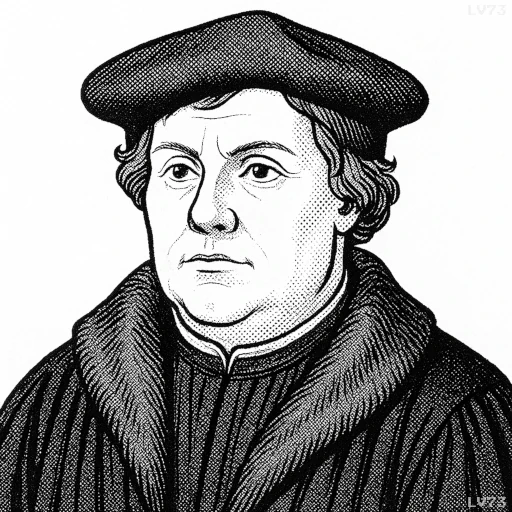“I feel much freer now that I am certain the pope is the Antichrist.”

- November 10, 1483 – February 18, 1546
- Born in the Holy Roman Empire (Germany)
- Reformer, theologian
table of contents
Quote
“I feel much freer now that I am certain the pope is the Antichrist.”
Explanation
In this quote, Martin Luther expresses his profound sense of freedom after coming to the conclusion that the Pope, as the leader of the Catholic Church, represented the Antichrist—a figure of deception and falsehood in Christian theology. Luther’s declaration reflects his deep conviction that the Church, particularly under the leadership of the Pope, had strayed from the teachings of Christ and was engaging in practices that were contrary to the gospel. By identifying the Pope as the Antichrist, Luther sought to make a bold statement about what he saw as the Church’s corruption, particularly its sale of indulgences and its hierarchical authority, which Luther believed overshadowed the authority of Scripture.
This statement came at a critical time during the Protestant Reformation, when Luther’s 95 Theses were challenging the authority of the Catholic Church. Luther’s rejection of papal authority was not just a theological stance but also a call for reform. By identifying the Pope as the Antichrist, Luther made a radical break from centuries of Christian tradition and set the stage for the development of Protestantism. His words were meant to draw attention to what he saw as the false teachings and abuses within the Catholic Church, aiming to liberate Christians from what he believed were the oppressive and misleading structures of the institutional church.
In modern contexts, this quote can be seen as an expression of religious and intellectual liberation, as Luther’s conviction led him to reject the established religious authority in favor of a personal relationship with God, grounded in the Scriptures. While his declaration is rooted in specific historical and theological conflicts of the 16th century, it also underscores the broader principle of challenging authority when it is perceived to be in conflict with truth. It speaks to the ongoing need for reformation in all areas of life, whether in religion, politics, or social structures, where systems of power may become corrupt or misaligned with fundamental values.
Would you like to share your impressions or related stories about this quote in the comments section?


